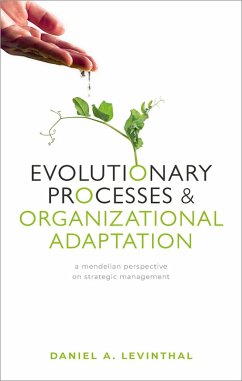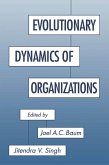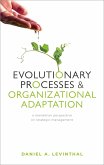How do firms adapt? There are two basic starting points from which to answer that question. One is premised on ideas of rational choice and intentionality, while the other is a process of evolutionary dynamics. Both are well-defined and operate as powerful intellectual attractors. Using the ideas of Gregor Mendel as a useful touchstone, this book aims to construct a middle-ground between these two conceptions. The image of the "Mendelian" executive shows how we might effectively balance the ideas of godlike rational design on the one hand and evolutionary dynamics on the other. The perspective developed in this book is anchored on the two key primitives of path-dependence and artificial selection. The intentionality of the Mendelian executive allows for the conscious exploration of opportunities, rather than the happenstance of random variants, yet the constraining forces of path-dependence may lead these moves to adjacent spaces. This perspective also highlights the role of intentionality with respect to the selection and culling of strategic initiatives. The organization operates an ?artificial selection? environment, as firms receive profits and losses and, in turn, mediate how these environmental outcomes are projected onto underlying elements and actors within the organization. In this spirit, exploration can be considered not merely as the distance in the underlying behavior from current action, but also as changes in the dimensions of merit by which initiatives are judged. The Mendelian executive is a catalyst and cultivator of promising pathways to unknown futures.
Dieser Download kann aus rechtlichen Gründen nur mit Rechnungsadresse in A, B, BG, CY, CZ, D, DK, EW, E, FIN, F, GR, HR, H, IRL, I, LT, L, LR, M, NL, PL, P, R, S, SLO, SK ausgeliefert werden.









